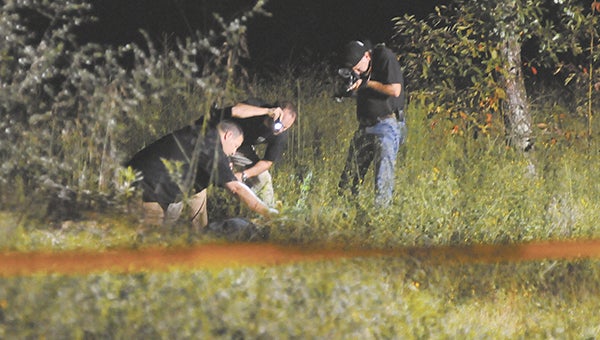Attorneys: Man ‘standing ground;’ death penalty unconstitutional
Published 12:00 am Thursday, August 4, 2016
Attorneys for a local man charged with capital murder have filed two motions in the case, arguing that he is immune from prosecution and asking the court to declare the death penalty charge unconstitutional.
Shelton Lorenz Foster is accused of murdering 48-year-old Donnie Earl Bone in an area off Old Drag Strip Road in September 2012.
A hunter found Bone’s body under a tarp shortly before 8 p.m.
Law enforcement officers struggled to identify the body until Bone’s family reported him missing around 3 a.m. Friday morning.
According to Star-News archives, Bone was shot in the back of the head.
Additionally, testimony at the prelim hearing showed the shooting could have been a result of a “drug deal gone wrong.”
Local attorneys Manish Patel and Chris Sledge are representing Foster and have filed a motion on his behalf seeking immunity from prosecution. They also have requested an evidentiary hearing.
As part of the motion, Foster’s attorneys are citing Harrison vs. State of Alabama.
Last December, the Alabama Court of Criminal Appeals ruled that an immunity hearing is allowed and required.
The trial judge in the case did extensive research of the law and how self-defense, stand your ground and immunity laws were applied in other states.
In the motion, the attorneys say that Shelton without admitting to the charges against him, maintains that any actions that were in fact taken were made in reasonable self-defense in accordance to state law that allows people to stand their ground.
That hearing has been set for Sept. 20, 2016, at 2 p.m., before Circuit Judge Lex Short.
In a separate motion, Shelton’s attorneys ask that the court declare the death penalty section of the Alabama Capital Murder Statute unconstitutional.
The attorneys say in the motion that under Alabama law, the final decision after a capital murder conviction rests with the judge as to whether a defendant is sentenced to death or to life without parole.
In February, the U.S. Supreme Court ruled that the final decision after a capital murder conviction as to whether the defendant should be sentenced to life without parole rests with the jury; not the judge.
The motion asks that the court issue an order declaring that the death penalty section is inapplicable and that if Shelton is convicted, the punishment shall not be the death penalty.
It also states that the “Honorable Circuit Judge T. Todd of Jefferson County, Birmingham Division has ruled upon a similar motion in a capital case before him on or about March 3, 2016. Judge Todd has ruled that Alabama’s death penalty scheme is unconstitutional, citing the United States Supreme Court’s recent decision striking down Florida’s death penalty scheme (Hurst v. Florida) because it does not require the jury to make critical findings necessary to impose the death penalty. Because Alabama has the same sentencing scheme as Florida, the circuit judge found the court’s decision applies to cases in Alabama as well.”
Judge Short will hear the motion on Aug. 30, at 2 p.m.






